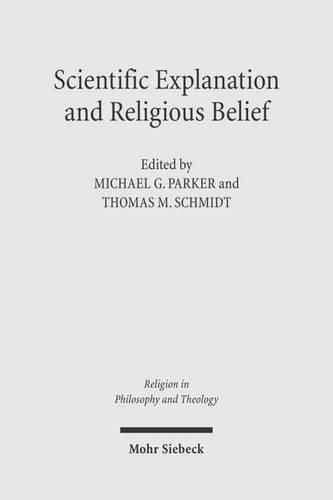Readings Newsletter
Become a Readings Member to make your shopping experience even easier.
Sign in or sign up for free!
You’re not far away from qualifying for FREE standard shipping within Australia
You’ve qualified for FREE standard shipping within Australia
The cart is loading…






The science-and-religion dialogue has now become an established part of the wider cultural debate about the respective roles of science and religion within democratic societies. Typically, science has usually been identified with the sphere of reason, fact and explanation, whereas religion has been located within the realm of experience, value and interpretation. But religions also prescribe beliefs and support these with metaphysical accounts of the self, world and God. Such belief systems are both identity-forming and comprehensive. But the pluralism of world-views within modern liberal democracies and methodological naturalism in the sciences would seem to require believers to suspend these deeply-held beliefs when engaged in public discourse or scientific inquiry. This raises a number of interesting philosophical and practical issues which this volume seeks to address. As a reflection on the matrix of science, religion and politics, this volume constitutes a major contribution to an important, but neglected topic. This book will open up new lines of research and communication not only among philosophers, scientists and theologians, but for all those interested in the larger cultural conversation about the relationship between science and religion.
$9.00 standard shipping within Australia
FREE standard shipping within Australia for orders over $100.00
Express & International shipping calculated at checkout
The science-and-religion dialogue has now become an established part of the wider cultural debate about the respective roles of science and religion within democratic societies. Typically, science has usually been identified with the sphere of reason, fact and explanation, whereas religion has been located within the realm of experience, value and interpretation. But religions also prescribe beliefs and support these with metaphysical accounts of the self, world and God. Such belief systems are both identity-forming and comprehensive. But the pluralism of world-views within modern liberal democracies and methodological naturalism in the sciences would seem to require believers to suspend these deeply-held beliefs when engaged in public discourse or scientific inquiry. This raises a number of interesting philosophical and practical issues which this volume seeks to address. As a reflection on the matrix of science, religion and politics, this volume constitutes a major contribution to an important, but neglected topic. This book will open up new lines of research and communication not only among philosophers, scientists and theologians, but for all those interested in the larger cultural conversation about the relationship between science and religion.